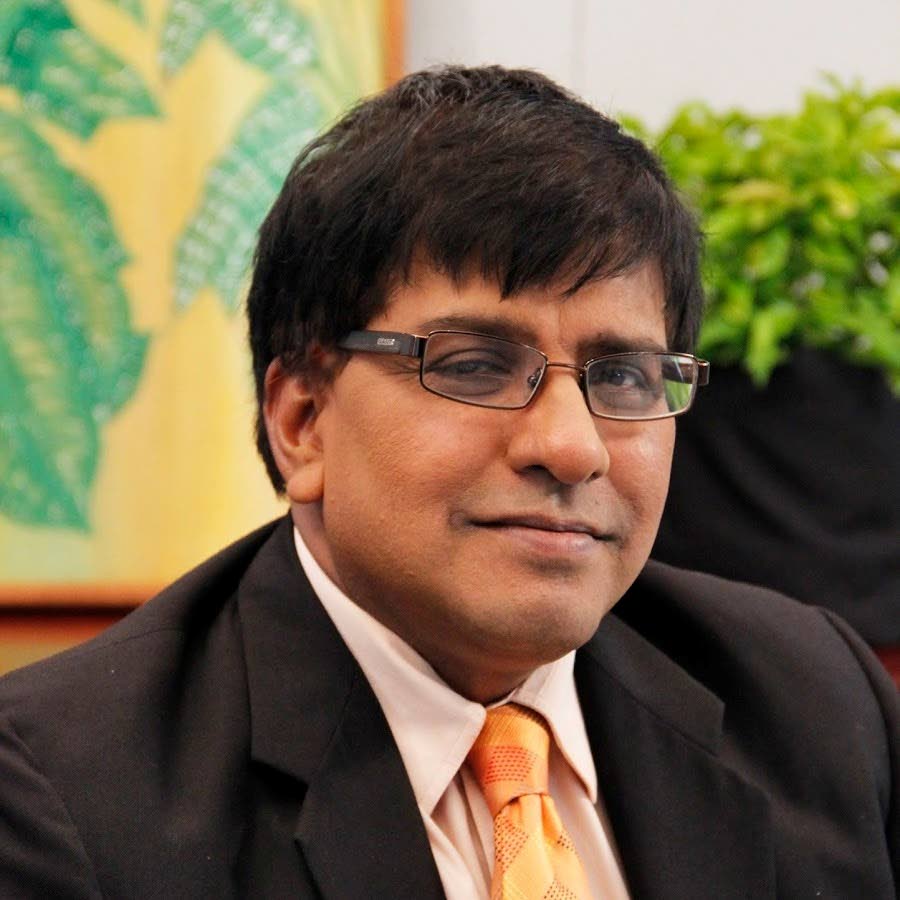Political analyst: Unions' power to influence voters questionable

UWI political analyst Dr Bishnu Ragoonath says questions remain over the ability of trade unions to persuade their members to vote in a particular way in any national election.
He expressed this view on June 21, in response to a call by Joint Trade Union Movement (JTUM) president Ancel Roget for the creation of a national front alliance against the PNM in next year's general election.
At a Labour Day rally in Fyzabad on June 19, Roget said, "In the coming weeks, with the exception of TTUTA (Trinidad and Tobago Unified Teachers Association) and any other paid political trade unions, with the exception of them, we in the trade union movement have agreed to meet all opposing forces and all political parties, including the UNC.”
At May Day celebrations in San Fernando, TTUTA president Martin Lum Kin said while the union had several issues it was addressing with the Education Ministry on behalf of teachers, it had never aligned itself with any political party.
Roget said the purpose of the meetings was not to form a new political party.
“We have a political party, the MSJ, and we will also be meeting with the MSJ.
“The purpose of those meetings is to build a national front alliance to remove the PNM from office come next general election.”
While the creation of a national front alliance is possible, Ragoonath said the question remains whether such an arrangement would have the effect that JTUM wants.
"Historically, what we have seen is that whereas the trade union leaders may call or may suggest that there is such unity, the mere fact remains that they do not necessarily command the voting positions of their membership."
Ragoonath said the pattern had repeated over time where trade unions "call over and over again for certain types of actions, yet still they don't get it."
He noted that Roget mentioned the labour movement already had a political party in the form of the Movement for Social Justice (MSJ).
"But notwithstanding that they have their own political party, they have not been able to get their membership to actually vote for that political party."
Ragoonath said when the political fortunes of the MSJ to date were analysed, "what you may see is whereas the unions may call for unity and call on their membership to support a particular political party, that does not necessarily suggest that the membership will blindly follow the call from the leadership."
On June 20, the Prime Minister did not view the proposed national front alliance by JTUM posing any political threat to the PNM.
Referring to the formation of the People's Partnership coalition in 2010, Dr Rowley said it has been proven that any marriage of convenience has been detrimental to the national interest.
Fluctuating labour-political relationships over time.
RELATIONS between trade unions and political parties have not always been amicable over the years.
In 2010, Roget and other labour leaders campaigned actively through the MSJ against the PNM.
The MSJ became one of five political parties which formed the People’s Partnership (PP) coalition, which defeated the PNM in the May 24, 2010 general election.
The other parties were the UNC, the Congress of the People (COP), the Tobago Organisation of the People (TOP) and the National Joint Action Committee (NJAC).
Relations between the PP and the labour movement soured in 2011 when the Public Services Association (PSA) agreed to a proposal for a five per cent wage cap on workers’ salaries from the PP. Roget was among the first to condemn the PSA and PP for this.
The feud between the PSA and JTUM on this issue caused a major split in the labour movement.
Then-PSA president Watson Duke is now the political leader of the Tobago-based Progressive Democratic Patriots (PDP).
In June 2012, the MSJ announced its departure from the PP after complaining that its former coalition partners were not addressing concerns about corruption within the government. Abdulah was a government senator at that time.
Also in 2012, JTUM met with the then-opposition PNM to discuss their shared concerns about the Section 34 scandal under the PP and the response of then-prime minister (now Opposition Leader) Kamla Persad-Bissessar.
This scandal involved the passage of Section 34 of the Administration of Justice Act, which gave individuals whose matters have remained without trial for ten years or more the right to have them dismissed by a judge.
The PNM claimed this would allow several high-profile UNC members with matters before the courts to have them dismissed.
At that time, Roget said the meeting did not signal the formation of a political coalition between JTUM and the PNM.
The section was subsequently repealed after public protests by several groups, including the PNM and trade unions.
In 2014, Roget used a female mannequin in a yellow dress to depict Persad-Bissessar when the OWTU staged protests against the PP.
Before the September 7, 2015, general election, some trade unions partnered with the PNM against the PP in the hope that an incoming PNM government would help the labour movement. The PNM defeated the PP 23-18 in that election.
During last August’s local government elections, some members of the OWTU openly campaigned with the UNC in certain electoral districts in San Fernando.
At that time, Roget said the union had no alliance with the UNC.
While repeating that the OWTU had an alliance with the MSJ, Roget did not condemn the actions of union members who chose to assist in the UNC’s local government campaign.

Comments
"Political analyst: Unions’ power to influence voters questionable"